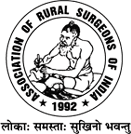| |
The concept of rural surgery
has been developed in India in the last thirteen years to make modern
surgical care accessible to the five billion havenots of the developing
world. Only one billion out the total of six billion population
of the world has any access to the type of surgical care seen in
the hospital of Western Europe and America. In India, out of the
population of one billion as of today, not more than 10% has any
access to this type of surgical care. Nearly 600 post graduate trained
surgeons are churned out of its medical colleges every year. Many
of them go out to the middle east or other developed countries and
are totally lost to the nation. Some of the rest get absorbed in
the teaching institutions of the country, super specializing. Others
go out and practice in the impoverished district hospitals or voluntary,
hospitals or set up private practices, in small towns, and in semi
urban and rural areas. It is this third category of surgeons that
reach out to the needs of majority of the population of the country.
They work under extreme constraint of resource. They combine their
western medical and surgical knowledge together with locally available
human and material resources and provide appropriate health care
to the people. They not only practice multiple surgical disciplines, they also do general practice and preventive and promotive medicine including maternal
and child health. Thus although they are trained as surgeons they
go into total health care to live upto the needs of the community. Programs with rural track are among the best surgery residency programs in the USA. Around 10 percent of all surgery residency programs in the USA have rural pathway.
| Association
of Rural Surgeons of India |
|
In 1986 the Association of Surgeons of India held a symposium on
“Surgery in rural areas” with these surgeons. Following
this a survey was conducted to find out the working conditions of
these surgeons to which 140 surgeons responded. It was found that
45% of them work without a qualified anesthetist, 68% without a
qualified radiologist, 68% without a qualified pathologist, 63%
without any blood bank facilities. And 32% without any of the above
facilities. 96.4% of them performed abdominal surgery, 68.3% performed
orthopedic surgery, 80.2% performed obstetric and gynecological
surgery, 29.5% performed thoracic surgery, 81% performed urological
surgery, 15.5% performed ENT surgery and 66% performed more than
three of the above mentioned categories. This survey was done by
Dr. R.D. Prabhu, of Shimoga, Karnataka.
56 of such surgeons requested the Association of Surgeons to accept
this from of surgical care as a specialty for the benefit of the
majority population of the country which was turned down in 1992.
This inevitably led to the formation of the Association of Rural
Surgeons of India (ARSI) in 29 November 1992, and in September the same
year the First National Conference of Rural Surgery was held in
the Mahatma Gandhi Institute of Medical Sciences, Sevagram, Wardha,
India, A book was released titled Concept and Practice of Rural
Surgery, and a newsletter was started on Rural Surgery.
Till today, Sep. 2004, twelve national conferences have been held
in different parts of our country and the thirteenth is going to be held
this year at Ujjain, Madhya Pradesh in Sep. 2005. The Association of Surgeons of India has now finally
recognised this as a specialty.
| Rural
Surgery as a Specialty |
|
The Indira Gandhi National Open University, New Delhi, has started
designing a multidisciplinary course in Rural Surgery in collaboration
with the Association of Rural Surgeons of India (ARSI). This is
to make qualified surgeons suitable to work under resource constraints
in rural areas amongst impoverished communities sharpening their
innovative skills and develop the capacity to make optimum use of
locally available human and material resources as far as possible.
The stress is on providing total health care including basic surgical
care to impoverished communities within their socio economic and
and cultural milieu.
Through this website, we invite surgeons and other doctors and health
professionals to network with us and strengthen this type of health
care activity worldwide. Today the pressure of the healthcare industry
of the developed world is enormous on developing countries to
sell their products in the name of “development”. We,
who are working amonst poorer people, and without any health insurance
or social security resist this pressure. Sustainable health care
development will take place only when we professionals set the right
type of priorities for the benefit of the majority population of
the world.
|
|



